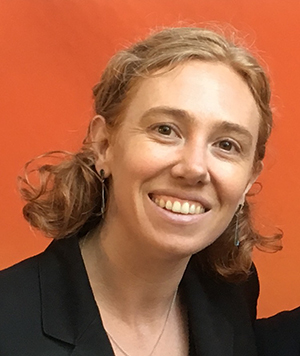LETTERS FROM BERLIN
★ ★ ★ ★
ALL FOR FAMILY

By Annie Mark-Westfall
In my family, the value that reigns supreme is Family. This is true for the immediate family of my childhood, my extended family of grandparents, uncles and cousins, and now the family that I have created with my husband. We discussed this explicitly before we got married—the notion that we were not just marrying each other, but marrying each other’s families. The expectation that we would not just love each other, but each other’s families. In marriage, the two of us became one, not just as individuals, but as families.
Perhaps this is easier for us given that we hail from the same hometown. My parents and my mother-in-law were already friends, making it only natural to unite our holiday celebrations when we return home. For the past three summers, we have celebrated Grandma Fest—our mothers travel together from rural Ohio to Germany, to spend two weeks with their grandchildren. Grandma Fest I and III coincided with the births of our children, while Grandma Fest II occurred just after our shipping container arrived at our new home in Berlin. Yes, we are in our early/mid-thirties, and still depend on our mothers for help.
In many ways, I take my family for granted. I know that my father will always answer his phone. He bemoans my preternatural ability to call almost exclusively when he is in a meeting (an impressive talent, considering he is semi-retired), yet he always picks up. I know that my mother will do anything I ask, filling her suitcase with my requests and online orders, leaving scant room for her own clothes to keep her warm and dry in Berlin’s cold and wet summer. And I know Grandma Bea will always fill a cookie jar with her signature chocolate chip cookies, each time I arrive home. I believe that Grandma will be there every time I come home, even though she is 98 years old, and one day our luck will run out. I ignore the lump in my throat every time I read her handwritten letters, which always include the line, “Every day when I open my eyes, I thank G-d.” Her son, my uncle in Connecticut will leave work at whatever hour is needed, to pick me up at the airport. And if there is a family emergency, I know that we will gather from all corners of the U.S. to assemble at Grandma’s house and get through it together, as we have always done. These things are known, understood, and to be taken for granted. To ask or to confirm their existence would almost be an offense.
“Dad, why do you pick up the phone if you’re in a meeting?”
“You might need something.”
“Uncle Bob, don’t you have to work?”
“Yeah, I have to work. What time does your flight get in?”
Lest I begin to sound even more spoiled than I already am, I should add that my family knows they can expect the same from me. For seven years, as the family member in closest physical proximity to Grandma, I was the first call from LifeAlert. My husband spent a year delaying his career change, to drive my grandparents to various appointments and grocery stores three to four days a week. When Grandpa died, my father was in the hospital receiving treatment for leukemia and awaiting a bone marrow transplant from his brother the following week; my cousins from Florida and California had come in to sit by Grandpa’s bedside during his final days; and it was my turn to come from Germany, to help pick out the casket, plan the funeral, and stay with Grandma.
In many ways, our family is traditional. My parents are married to each other, and my brother and I are both married and have two children. My extended family gathers regularly at my grandmother’s house, and we fill the table with food and the room of love. When any of us need anything at all, we circle the wagons and provide what is needed. This creates an indescribable sense of security, and my greatest wish is for my children to feel this sense of security, this connection to family.
In other ways, our family is unique. We are blended in religion, paternity, political beliefs, and geography. We are close because we decide to be, again and again; we prioritize family above all else. This means that sometimes we must put aside our ego, our hurt, disappointment or frustration, and even our ideals, and simply say, “They’re family.” Families—or at least my family—are not close because everyone behaves well and gets along with each other. We are close because it is more important to us to be close than anything else.
As the one-year anniversary of our move to Germany approaches this week and we celebrate the birth of our daughter, I ponder the role of family in my children’s lives. In many ways, they can have a better life here in Germany than we could ever provide in the U.S. Berlin is a child’s paradise, with its plethora of playgrounds, and a parent’s dream, with its free daycare, affordable insurance, paid parental leave, lack of guns and school shootings, and so much more. Yet if the key ingredient to my life’s fulfillment is family, and they are an ocean away, am I truly providing what is best for my children?
For now, the answer is yes. We are fortunate enough to live in an era of FaceTime, WhatsApp, and free text messages. I can email photos to the picture frame in Grandma’s living room each day. And we can take for granted that when the time comes to make a change, it will happen.

Annie Mark-Westfall graduated from Kenyon College in Ohio. As a former Fulbright grantee and Robert Bosch Foundation fellow, she views herself as a cultural ambassador. Her day job is with an international conservation organization.
























Your mother is so proud of you.
What an amazing and extraordinary woman you are. I have the privilege to work with your mom and though i haven’t met you it is already apparent you are the “mini me” of your momma inside/out. She is so proud of you and i am proud of her for creating such a wonderful productive, caring and compassionate daughter who loves and respects her parents and elders and appreciates all she has. Your children are blessed with having such an array of amazing family members who love each other, who look out for each other, and for the choices their mom and dad have made for a brighter and more beautiful future. Thank you for sharing, this made me smile and tear up a little. May God continue to bless you and keep you safe.
Thank you for reading and the kind note!